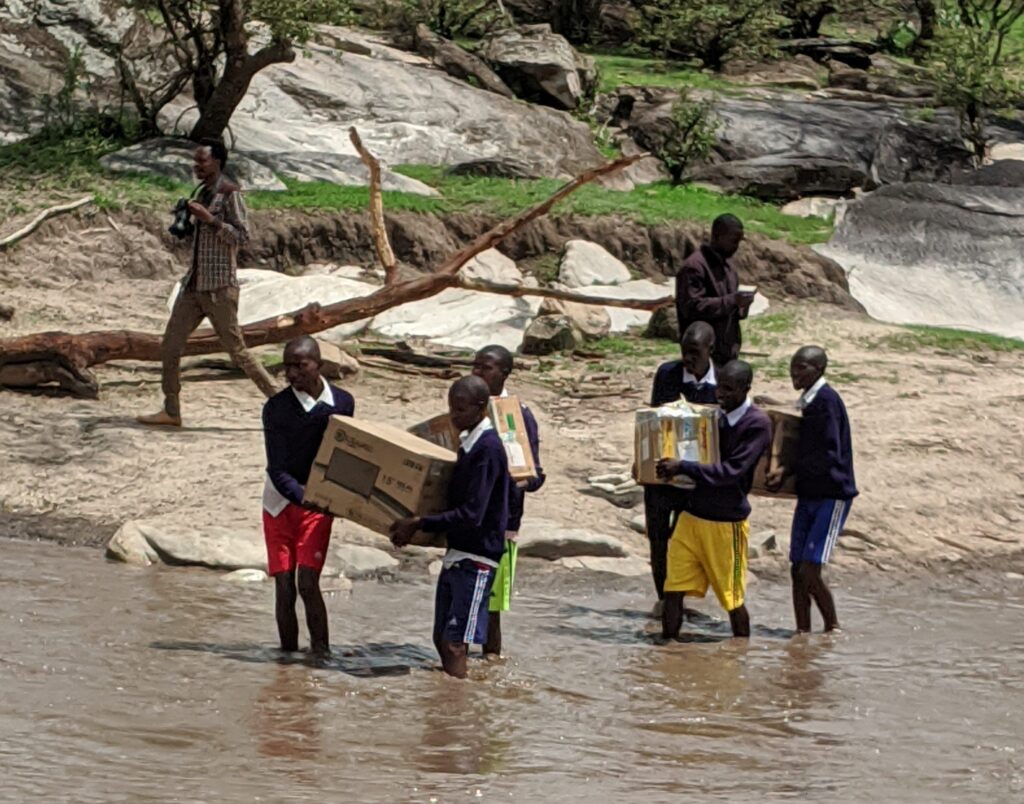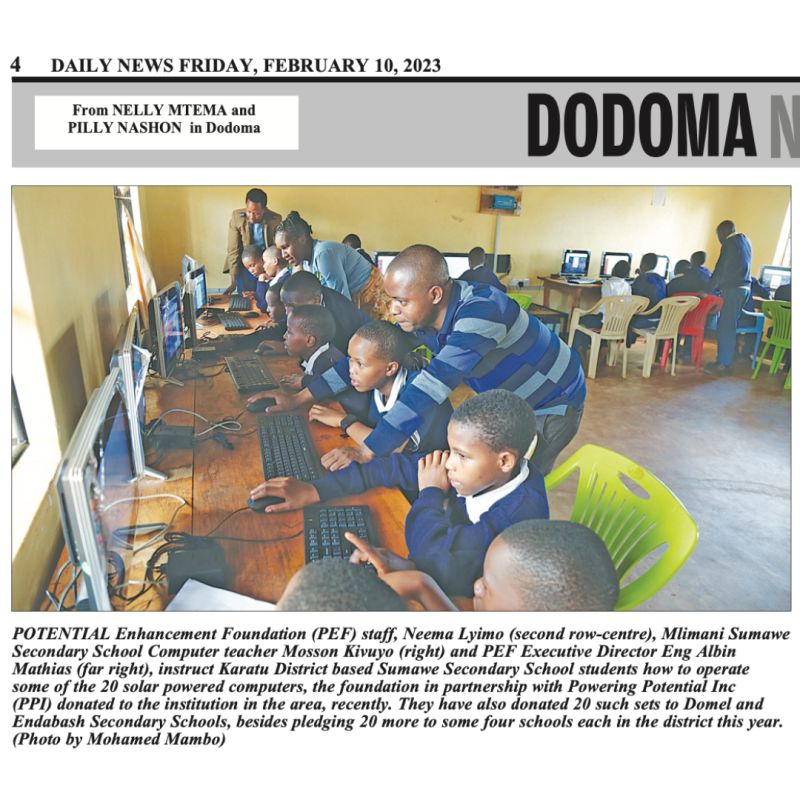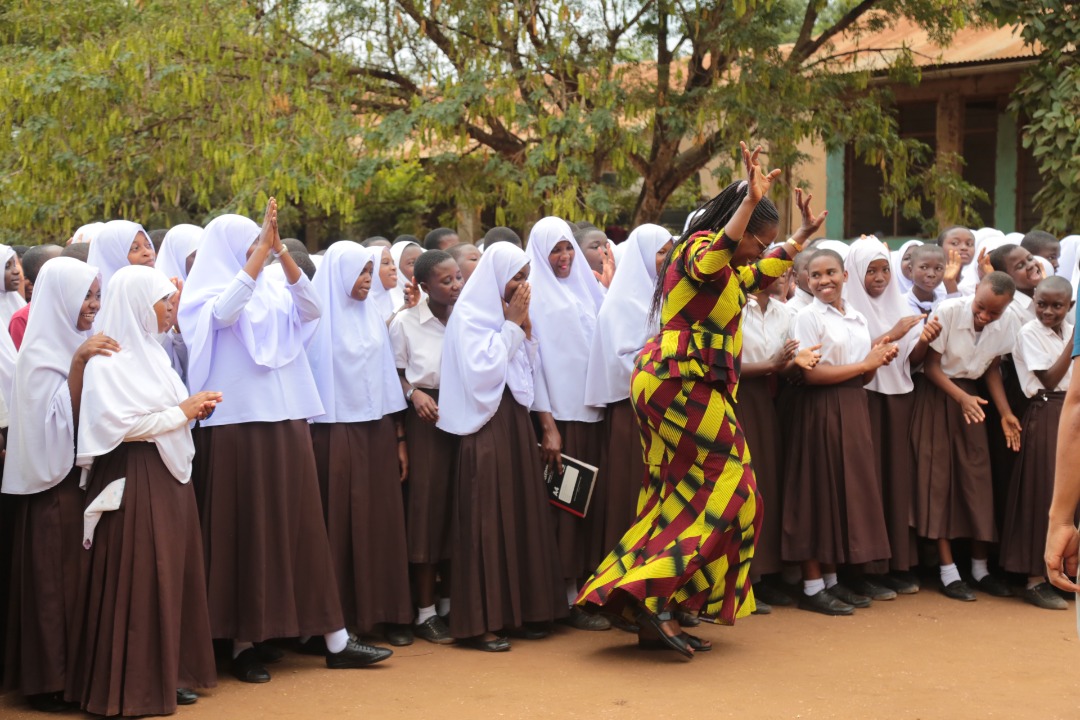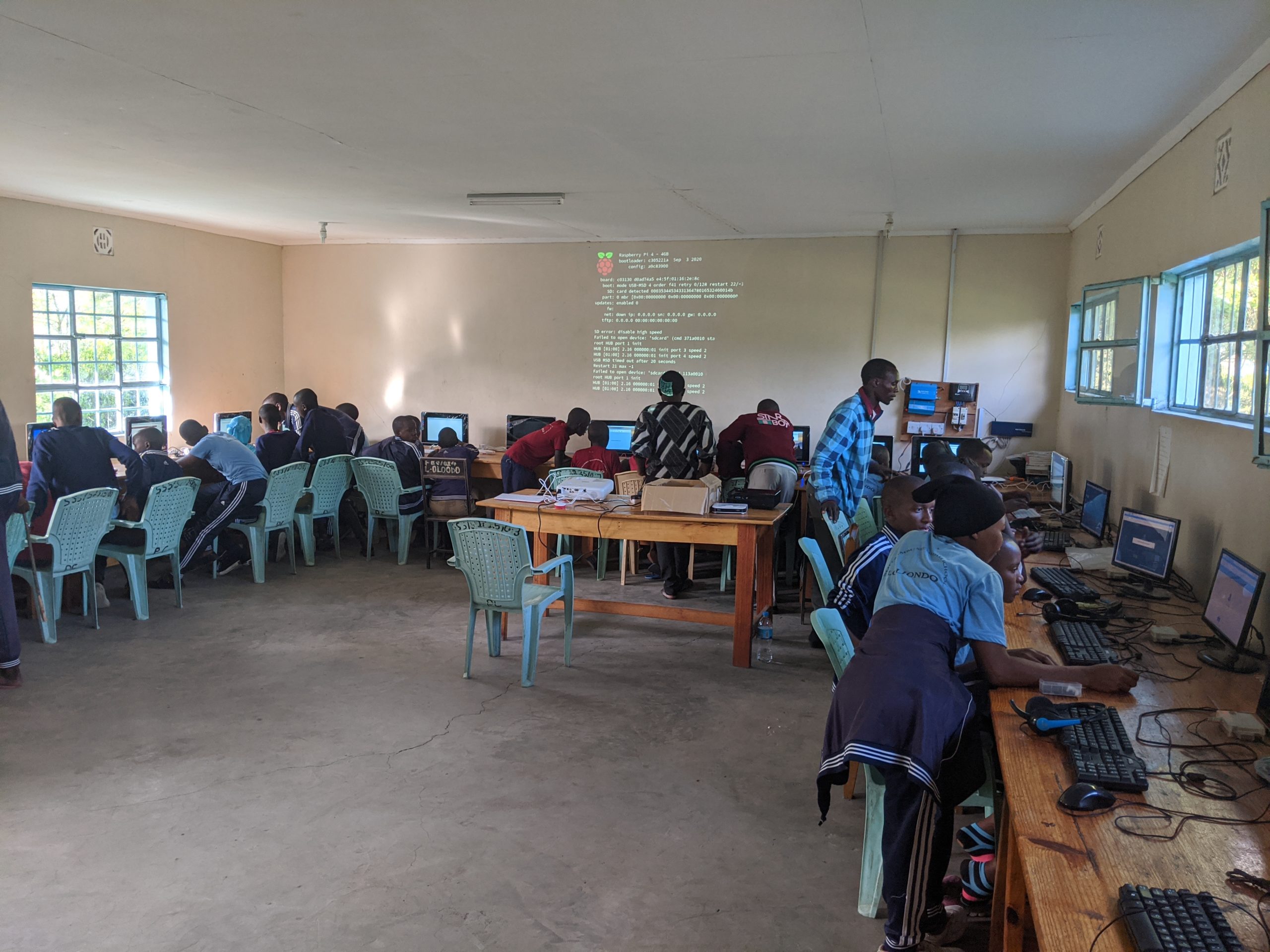Dream Come True at Nanenane
Nanenane Secondary School students and teachers are the latest beneficiaries of a SPARC (Solar Powered Access to Raspberry Computing) computer lab program donated by Powering Potential Inc. (PPI) in partnership with Potential Enhancement Foundation (PEF).
PEF Executive Director Eng. Albin Mathias handed over the SPARC Lab to the Headmistress of Nanenane Secondary School Ms. Sarah Madabi during a brief ceremony held on July 27 in Morogoro Region where the school is located.
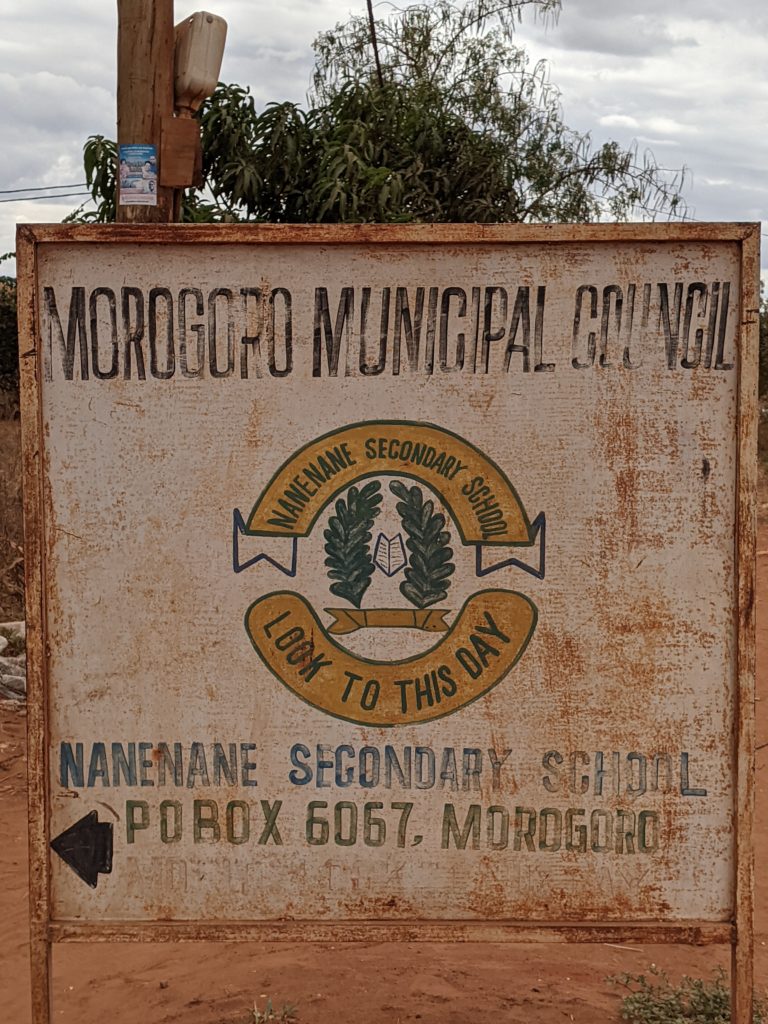
The newly installed system will enable students and teachers to access academic materials online without the need for electricity or the internet. It consists of a solar-power system, five user computers, a projector, a digital library, digitized Tanzanian secondary school curriculum, and training for students and teachers.
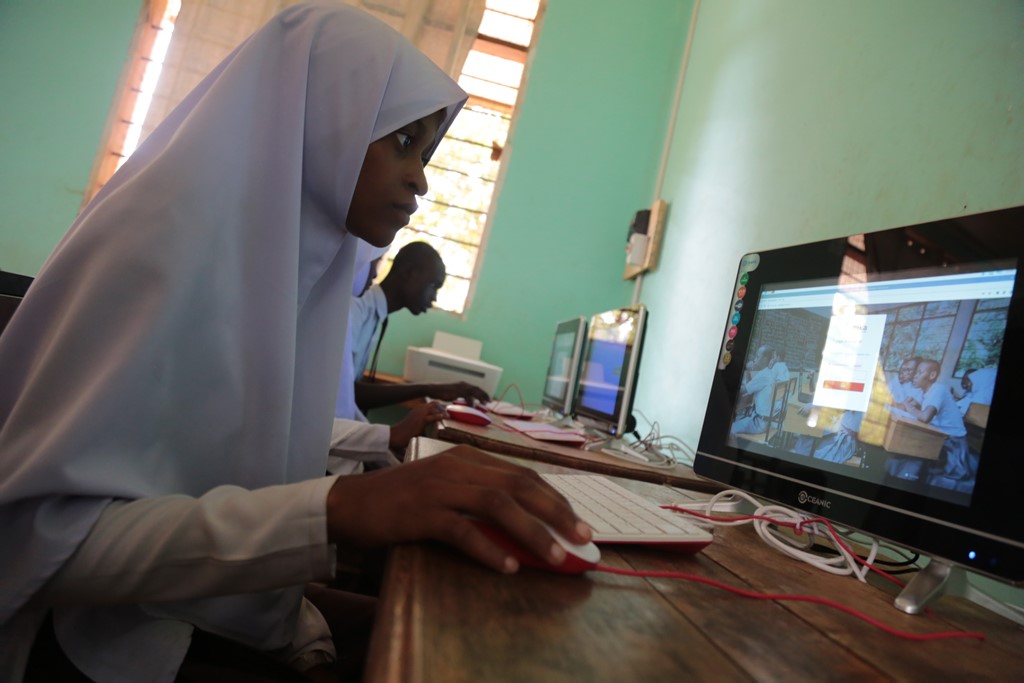
The donation is part of the mission of PPI in partnership with PEF to use technology to enhance education and expand opportunities for students and teachers especially in remote areas with limited electricity and internet.
“This is a dream come true,” declared Ms. Madabi excitedly after receiving the computers in front of a section of students and teachers who witnessed the handover ceremony. She said installation of the system augers well with the school’s renewed commitment to improve academic performances of its students.
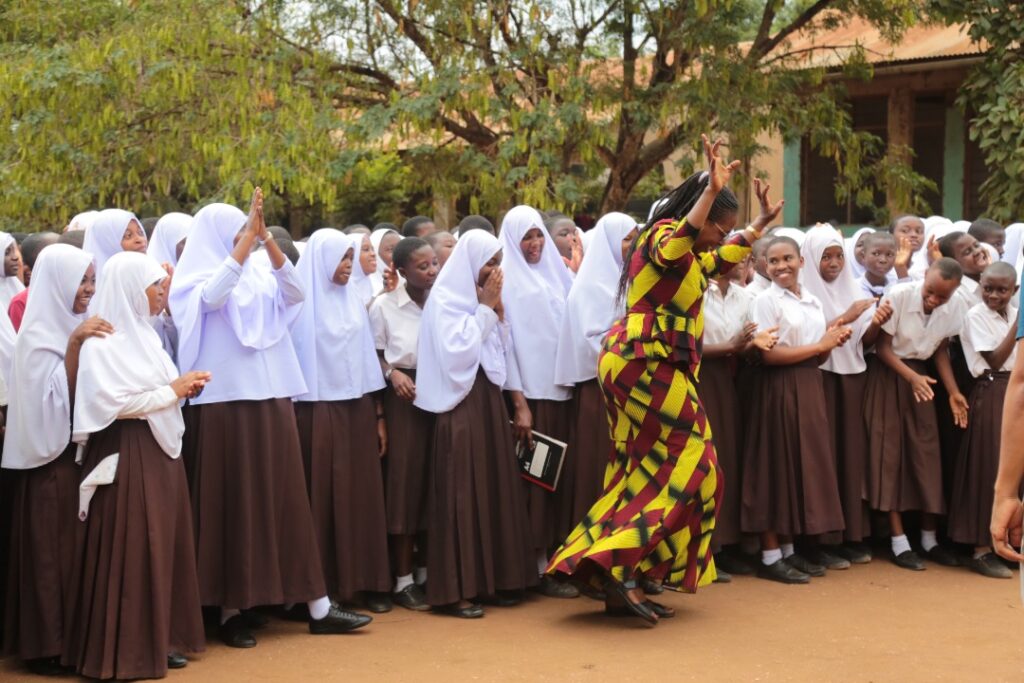
She continued: “The SPARC program will surely transform all of us academically. Long-term we want Nanenane to be exemplary among public schools in the region and possibly the entire country in terms of academic performances. Installation of the SPARC therefore sets us on the right course towards realization of our dream since all the notes and materials required by students are readily available and can easily be accessed digitally.
We worked hard and actually had to be patient to convince PPI and PEF to install the system here, therefore it goes without saying that we shall fully utilize its benefits and jealously protect the system to ensure its longevity.”
The school contributed to the project by providing a secure room with tables and chairs for the computer lab and has also set aside funds for repairs and maintenance.
Ms. Madabi said the school is grateful for the donation and is not taking it for granted, well aware that numerous other schools are desperate to have such system installed at their schools but have not been as lucky due to budget constraints. However, with a population of over 1,000 students and 50 teachers, she says the school could do with the second SPARC+ lab whose package includes additional 15 computers and expansion of solar system.

The Executive Director of PEF Eng. Albin Mathias commended the school’s administration for its efforts and resilience to convince PEF and to prepare for installation of its first SPARC lab. “You kept us on our toes to ensure we install the system and today we are all glad and excited to see this happening.”
Eng. Mathias expressed hopes that the system would be properly used and serve as an eye opener to most students, hence trigger tremendous improvements in their academic endeavors as well as the overall performance of the school.
He challenged the entire school community to fully utilize the newly installed system and protect it to ensure it operates optimally and for the intended purposes. He pledged that PEF and PPI will continue to assist the school in whatever way possible including finding donors to facilitate installation of the SPARC+ lab.
SPARC+ at SoitSambu in Ngorongoro, Tanzania

SoitSambu Secondary School students and staff were all cheers and smiles in January as they received a SPARC+ program (Solar Powered Access to Raspberry Computing) from Powering Potential whose mission is to use technology to enhance education and expand opportunities for students and teachers especially in remote areas with limited electricity and internet.
Experience the installation during this one minute video.
Located in Ngorongoro District, Arusha Region in Northern Tanzania, SoitSambu Secondary School is among the latest beneficiaries of Powering Potential’s donation of SPARC+, a complete system that enables students and teachers to access a wealth of information without the need for grid electricity or the internet. It consists of a solar-power system, 20 user computers, a projector, an offline digital library, the digitized Tanzanian secondary school curriculum, and training for students and teachers. The school received its first SPARC lab (five computers) in 2014 and was excited to receive 15 additional computers this time.
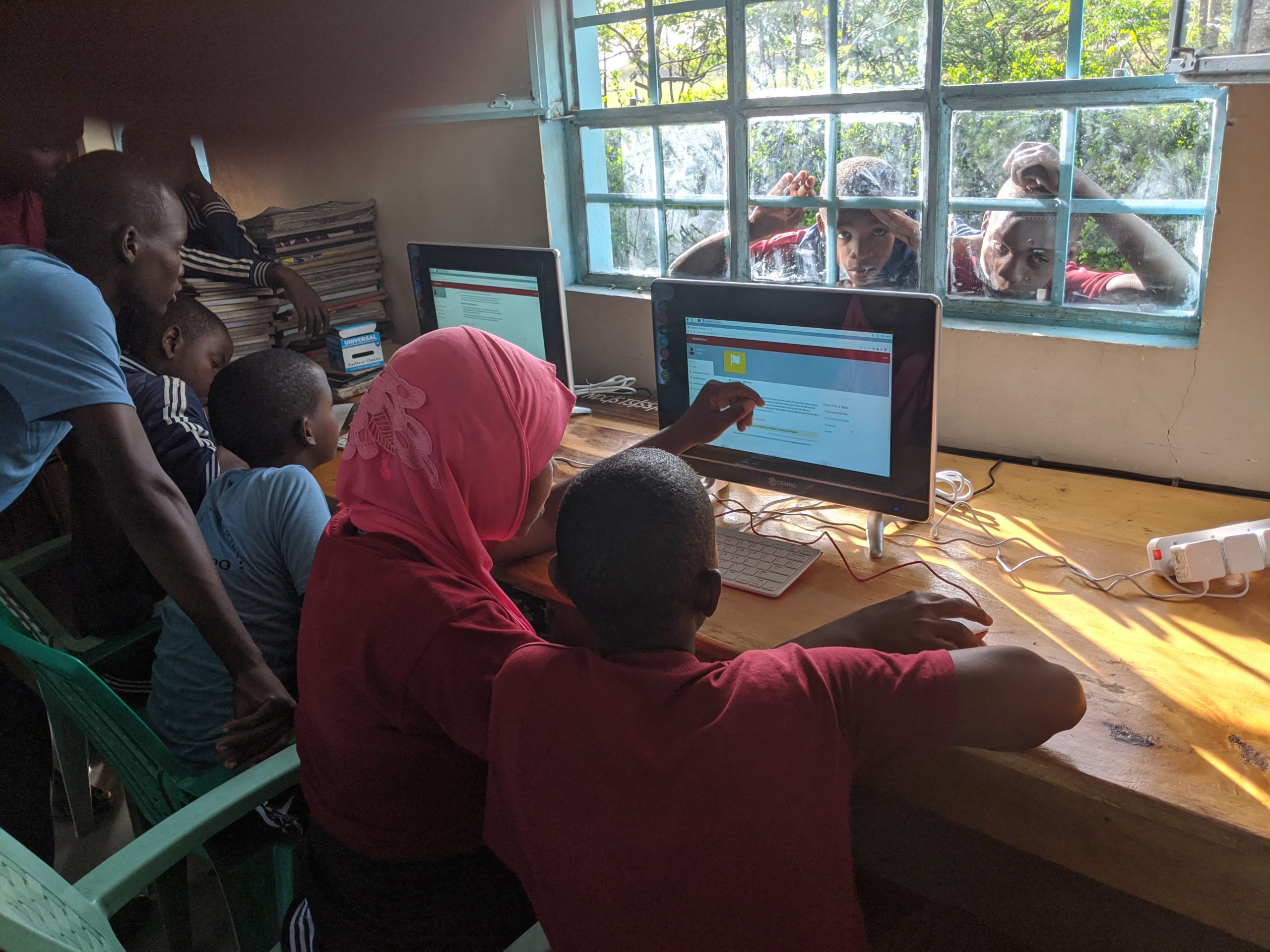
We interviewed 15 year-olds Sofia Omar and PrayGod Godwin who could not hide their enthusiasm and expectations for the future following the installation of new computers at their school…
Sofia Omar:
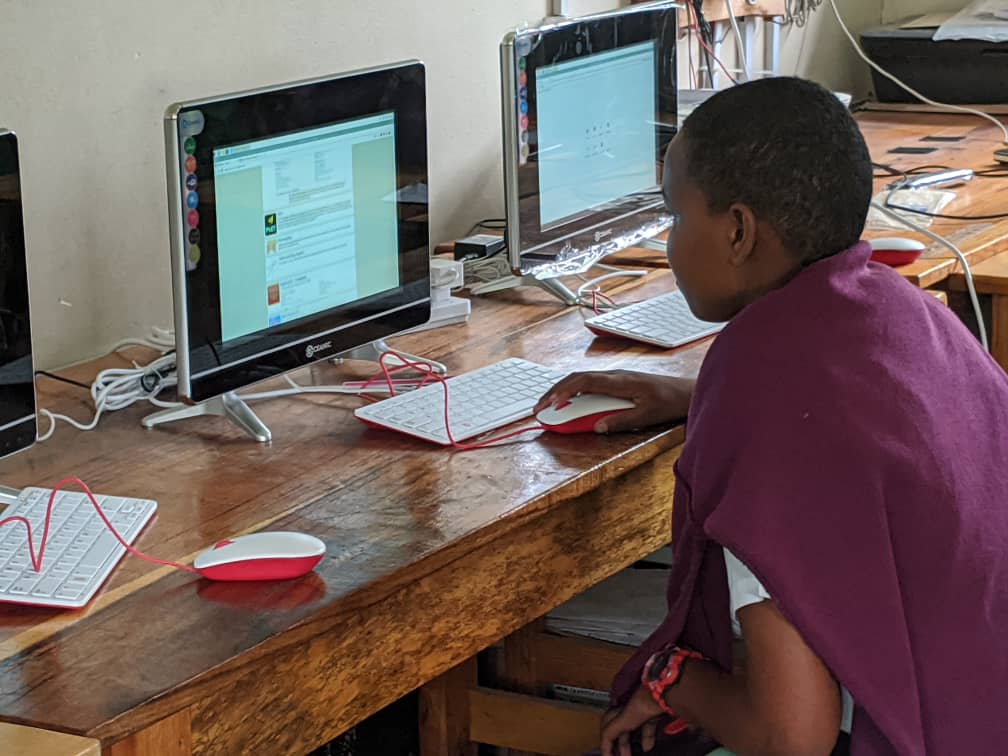
At 15 years of age, Sofia Omar could not hide her joy when for the first time a computer came to life right in front of her, turning a new page in the story of her young life.The last born in a family of three, Sofia who enjoys science subjects believes availability of a computer means that she can pursue her dream without much effort.
“Having access to a computer has really changed my life and opened the doors of opportunity in my life, because with my dream of becoming a doctor, I know that this will help in so many ways,” she says, noting that she wants to become a doctor in order to help her community fight diseases and improve people’s health.
The Form Two (grade 9) student further says that apart from learning subject matters, the computer and its programs are a good one-stop center for refreshing the mind, which challenges her thinking capacity. Rural schools, by their very nature, are more isolated geographically, and tend to be less affluent as well. This can result in fewer enrichment opportunities for their students, but with the donation of computers, children can have the chance to peek at the rest of the world.
She is grateful to Powering Potential for the donation of the computers and urges fellow students to fully utilize the computers to improve academically.
PrayGod Godwin:

PrayGod Godwin, a 15-year-old and the last born in a family of seven, is always excited about the prospect of working on a computer and foresees great opportunities ahead of him. He says that since computers came to the school, learning has become easy and fun, which supports his ambition of becoming a doctor one day.
“I have gained a lot from the computer and transformed the method of learning since they were donated to our school, in terms of accessing learning materials,” he says. The Form Two (grade 9) student says that not only do rural students benefit from educational tools and increased access to information and resources through the computers, but they grow and mature from the networking and connection created by technology.
He says that when he informed his parents that he was using a computer at the school, they were thrilled with the news, foreseeing a bright future for their child, with loads of opportunities which were not available to them. He further says that with access to computers, he is sure that the performance rate at the school is going to improve drastically, because for them accessing information was a major challenge. He calls upon his fellow students to embrace learning through the computer and fully utilize the tool to improve their performance in class, because it will be the best for their own future.
“We are really happy about the donation of the computers to our school…..they make a huge difference to us, especially for remote schools like ours,” he says.
